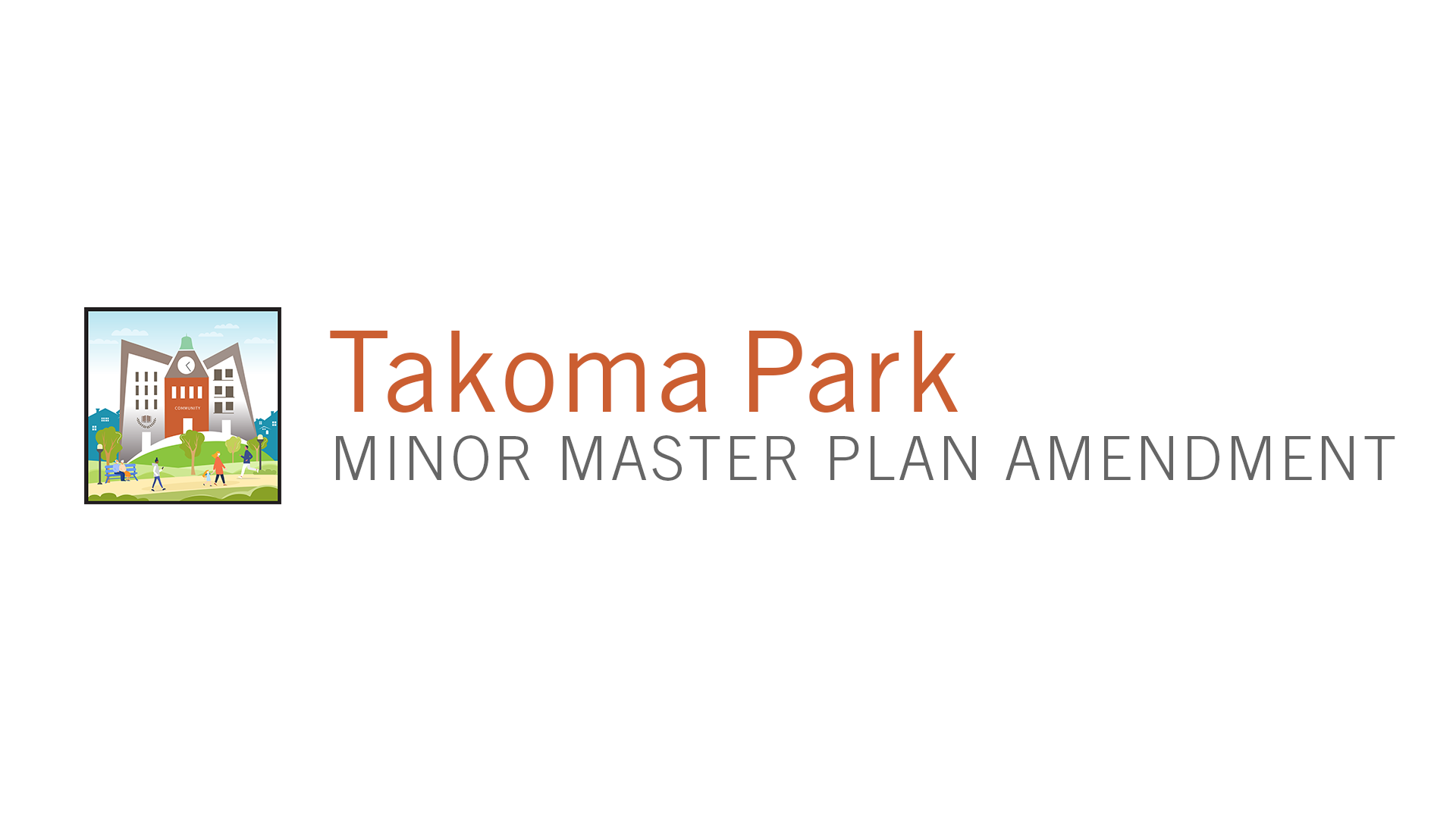
Planning Board expected to set public hearing date for draft plan re-envisioning areas along Maple Avenue and Flower Avenue, including the Washington Adventist campus area.
WHEATON, Md. – The Montgomery County Planning Department, part of The Maryland-National Capital Park and Planning Commission (M-NCPPC), will present the Working Draft of the Takoma Park Minor Master Plan Amendment to the Montgomery County Planning Board at the June 8 weekly Planning Board meeting. Montgomery Planning staff will request the Board accept the Working Draft Plan as the Public Hearing Draft and set the date for a public hearing to receive community feedback. These are the first steps prior to the Planning Board conducting work sessions to review and revise the draft plan before submission to the County Council and County Executive for public review and final County Council approval.
The plan is a partnership with the City of Takoma Park and on May 24, Montgomery Planning staff presented the Working Draft Plan to the Takoma Park City Council.
Read the Takoma Park Minor Master Plan Amendment Working Draft.
The Working Draft Plan is the result of Montgomery Planning’s extensive research and analysis of the plan area and its equitable community engagement efforts in partnership with the City of Takoma Park. Since fall 2021, the master plan team has shared plan updates and reports and gathered hundreds of comments and ideas from Takoma Park residents, businesses, elected officials and other stakeholders during pop-up events, community and government meetings, visioning workshops, and door-to-door canvassing.
“The Takoma Park Minor Master Plan Amendment Working Draft is the product of our great collaboration with the residents, property owners, and the staff and Councilmembers of the City of Takoma Park,” said project lead Melissa Williams. “The plan guides future growth by building on existing assets to be a resilient, reimagined, and reconnected community with new housing options, greener and safer streets, and improved access to public amenities – all implemented through the lens of racial equity and social justice.”
About the Takoma Park Minor Master Plan Amendment
The Takoma Park Minor Master Plan Amendment updates portions of the 2000 Takoma Park Master Plan to re-envision the section of the city that includes the Washington Adventist Hospital and University campuses, the Erie Center (located at the intersection of Flower Avenue and Erie Avenue), and multi-family properties, parks and the Takoma Park Community Center located along Maple and Lee avenues. This plan boundary was determined by the Montgomery County Planning Board in coordination with the City of Takoma Park. It was approved by the Planning Board on September 30, 2021.
The Takoma Park Minor Master Plan Amendment’s webpage is updated with more information about the plan and on the ways the community can get involved and stay connected. The website has an updated plan timeline, frequently asked questions, how you can set up a meeting with a planner, and a place to sign up for the Takoma Park Minor Master Plan Amendment eLetter.
Key Recommendations of the Takoma Park Minor Master Plan Amendment
Land Use, Zoning and Housing
- For compatible future development flexibility, recommend residential and commercial mixed-use zoning for properties on and around Washington Adventist campus and along Maple Avenue
- Provide pedestrian-oriented environments with walkable blocks, attractive public spaces, neighborhood serving retail, and attractive stormwater management
Improved Connectivity
- Improve bicycle and pedestrian safety and connectivity
- Incorporate a well-lit, walkable Green Promenade from town hall to the Washington Adventist campus
- Seek opportunities for a micro-mobility hub for better multi-modal access
Environmental Resiliency
- Enhance the community’s ability to adapt to, mitigate for, and thrive in the face of climate change
- Support the city’s Stormwater Management Program to improve Sligo Creek water quality and reduce untreated runoff and flooding
- Provide methods to reduce impervious surfaces
- Minimize urban heat islands by incorporating cooling elements like street trees and shaded seating areas into the streetscape
Parks and Open Space
- Enhance the ecological health and performance of Sligo Creek Stream Valley Park
- Study the potential for community garden at Opal A. Daniels Park
- Connect surrounding communities through Washington Adventist campus to Sligo Creek Stream Valley Park and Maple Avenue
Historic Preservation
- Evaluate the Heffner Park Community Center, Sligo Seventh-day Adventist Church, and Krestview sites for potential historic significance and listing on the Master Plan for Historic Preservation
- Study Takoma Park’s historic African American neighborhoods for potential future listing on the Master Plan for Historic Preservation and/or the National Register of Historic Places
- Promote cultural heritage and further exploration of the community’s past
- Seek opportunities to retain historic design elements and resources
Equitable Engagement
To ensure the Takoma Park Minor Master Plan Amendment is strongly rooted in the community’s identity and core values, Montgomery Planning has implemented an inclusive engagement strategy throughout the planning process so far. Since September 2021, the Montgomery Planning team and City of Takoma Park partners have gathered input from more than 550 people at farmers’ markets, community events, and retail “pop-ups” in commercial areas, as well as from multiple civic and neighborhood association meetings.
Additional engagement activities included:
- canvassing at multifamily properties along Maple and Lee Avenues and at Washington Adventist University
- a virtual visioning hub
- a Visioning Open House with 100-plus community members
- an interactive visioning exhibit at Takoma Park Community Center
- regular plan briefings at Takoma Park City Council meetings
Translation services were provided during each engagement activity throughout the process as well as a questionnaire in English, Spanish, French, and Amharic. Engagement is being conducted in four phases—Listening, Visioning, Refining, and Sharing—to involve the community during all stages of the plan development.